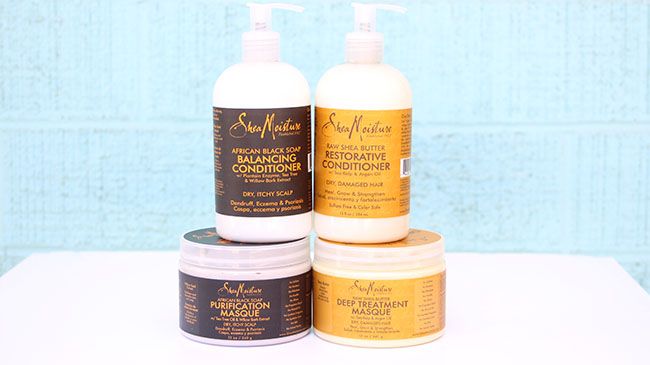Conditioners have always been a hot topic of discussion in the curly hair realm. Are we using the right products for adequate conditioning? What is the best way to condition? Once the hair has grown from the hair follicle, it must be conditioned for the best preservation. We can find this external nourishment via hair product ingredients found in our daily conditioners and deep conditioners.
What’s in a daily conditioner?
A daily conditioner is also known as a surface conditioner, cream rinse, or finishing rinse. These are usually formulated to be used in conjunction with a shampoo. They are designed for daily maintenance and manageability for your hair by conditioning the cuticle, making it lie smooth, enhancing shine, and reducing frizz. Manufacturers usually recommend leaving a daily conditioner on the hair for 1-5 minutes before rinsing. The purpose of a daily conditioning rinse is to moderately adsorb ingredients onto the surface of your hair. According to our Curl Chemist Tonya McKay, “adsorption describes the process when atoms or molecules are attracted to the surface of a material (hair”>.”
Manufacturers are careful not to create daily conditioners that will stick to the hair for too long. Daily conditioner formulations are made to last longer than a leave-in treatment, yet shorter than a deep treatment, making it safe and gentle enough for daily usage.
Common Ingredients found in conditioners
ChemistCorner says “for a hair conditioner to work, it has to be left behind. The primary conditioning agents include quaternized surfactants (quats”>, cationic polymers, silicones, emollients, and humectants.” Here are some examples of such ingredients found in conditioners:
Stearalkonium Chloride, Cetrimonium Chloride, Dicetyldimonium Chloride, Behentrimonium Methosulfate, Behentrimonium Chloride, Stearamidopropyl Dimethylamine, Dimethicone, Glycerin, Propylene Glycol, Sodium Lauryl Sulfate, Ammonium Lauryl Sulfate, Cocamidopropyl Betaine, Sodium Lauryl Sulfate, Ammonium Lauryl Sulfate, Cocamidopropyl Betaine, water, to name a few…
Different formulations produce varied effects.
What’s in a deep conditioner?
Deep conditioners are also known as “pack” conditioners. They have a heavy, thick consistency and typically require longer treatment time, which can be anywhere between 10-30 minutes based on manufacturer’s instructions.
The effects of a deep conditioner, like a daily conditioner, include treatment to the surface of the hair. However, most deep conditioners also contain ingredients with low molecular weight. These ingredients penetrate the hair, nourishing between the cuticles, within the cuticle layers and/or within the cortex. Look for formulations with penetrating oils (coconut, avocado, argan, and olive”>, panthenol, hydrolyzed wheat proteins, and caffeine for unprocessed hair- with the cuticle in tact. According to Natural Haven Bloom other ingredients like amino acids, amodimethicone, amino silicones, artificial peptides, 18MEA, and hydrolyzed palm oil, for example can penetrate hair with damaged, extremely porous or chemically treated hair.
The great effects of deep conditioners are longer lasting than a daily conditioner, as deep conditioners have a higher viscosity, which can be measured by “thickness”, and long lasting sustainability. For example, honey has a much higher viscosity than water. The properties can last for weeks at a time before wearing away.

